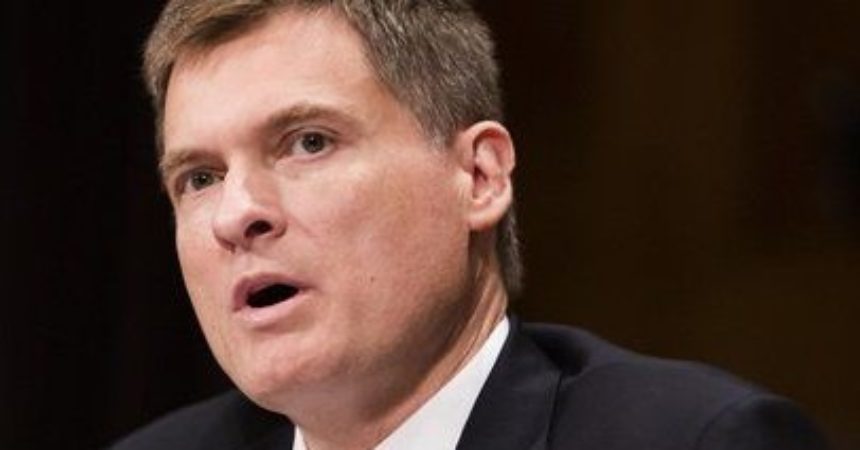
Primary election overhaul set for November ballot
By Jim Saunders
News Service of Florida
Rejecting arguments by the Republican and Democratic parties and Attorney General Ashley Moody, the Florida Supreme Court last Thursday cleared the way for voters to decide whether to overhaul the state’s primary-election system.
Justices, in a 4-1 decision, approved a proposed constitutional amendment that would allow registered voters to cast ballots in primary elections regardless of party affiliation. The two candidates getting the most votes in each primary would advance to the general election.
The measure will go on the November ballot. If approved, it would be a major change from Florida’s longstanding “closed” primary system, which generally limits primaries to voters registered with parties.

Supreme Court Justice Carlos Muniz argued that a proposed change to the ballot would not properly inform voters of the affect.
Photo special to the Outlook
“We are very pleased with the court’s decision and look forward to letting all registered voters vote in every taxpayer funded election,” said Glenn Burhans, chairman of the political committee All Voters Vote, which spearheaded the drive to put the proposal on the ballot.
The Supreme Court plays a critical role in ballot initiatives because it must determine whether they meet legal requirements, such as not being misleading to voters or not improperly lumping together multiple topics. Justices are not supposed to consider the merits of proposed amendments.
Last Thursday’s majority opinion, in part, said the wording of the proposed ballot title and summary — what voters see when they go to the polls — complies with requirements for clarity.
“The ballot title clearly identifies the subject of the initiative,” said the opinion, shared by Chief Justice Charles Canady and justices Ricky Polston, Jorge Labarga and Alan Lawson. “The ballot summary clearly and unambiguously explains the chief purpose of the initiative, which is to allow all registered voters to vote in primary elections in Florida for state Legislature, governor and Cabinet. Further, the ballot summary explains the details of this change in the primary election process by outlining that if the initiative passes, all candidates for an office will appear on the same primary ballot, and the two highest vote getters will advance to the general election.”
Also, the court majority said the proposal does not improperly combine more than one subject — a concept known as “logrolling.”
“Because each of the initiative’s components are part of a single dominant plan or scheme, the initiative does not engage in impermissible logrolling,” the opinion said.
But dissenting Justice Carlos Muniz argued, in part, that the ballot summary would not properly inform voters that the proposal “would take away the Legislature’s discretion to provide for state-run elections to choose political party nominees for those offices.” Muniz said the measure should be blocked from going on the ballot.
“For Florida voters who are members of political parties — which is to say, a strong majority of voters — the century-old tradition of electing party nominees in state-run primary elections is an essential aspect of participation in the electoral process,” Muniz wrote. “It is not an exaggeration to say that Floridians likely consider voting in such elections to be their right. The proposed amendment would take away the Legislature’s discretion to provide for these state-run party nominating elections for the affected offices. This legal effect is evident from the plain meaning of the proposed amendment’s text.”
The Republican Party of Florida and the Florida Democratic Party united in court to try to block the proposed amendment and were backed by Moody.
One of the issues raised by Muniz and opponents related to part of the text of the proposal that says nothing in a subsection of the amendment “shall prohibit a political party from nominating a candidate to run for office under this subsection.”
One possibility discussed during a December hearing at the Supreme Court was that parties could choose nominees in “pre-primaries,” with those candidates then advancing to the primary ballot.
“This proposed change to the constitutional status quo — a status quo that has allowed the Legislature for over 100 years to mandate state-run elections to select political party nominees — is not a mere detail,” Muniz wrote. “The proposed amendment would make the selection of political party nominees for the affected offices a private affair, subject to each party’s discretion. Given the expense and the logistical complexity of conducting a statewide election in our large and diverse state, no substitute, party-run nomination process is likely to resemble our existing state-run elections. And any objectively reasonable voter would consider this change a material legal effect of the proposed amendment.”
The primary proposal will appear on the November ballot as Amendment 3. It joins three other initiatives that have been approved for the ballot, including a measure that would increase the minimum wage, a measure that would make it harder to amend the Constitution in the future and a measure that would change wording in the Constitution about the citizenship of voters.







